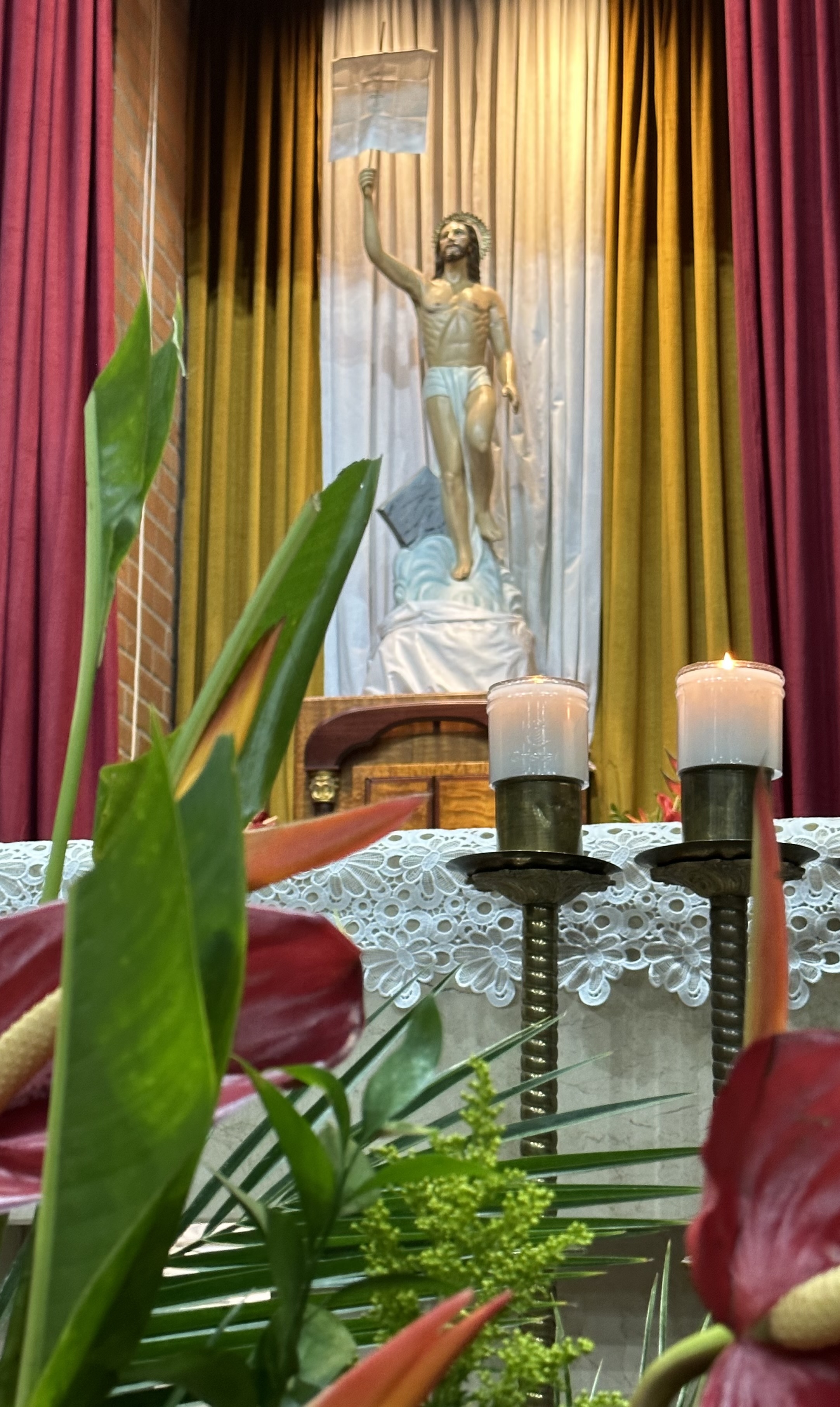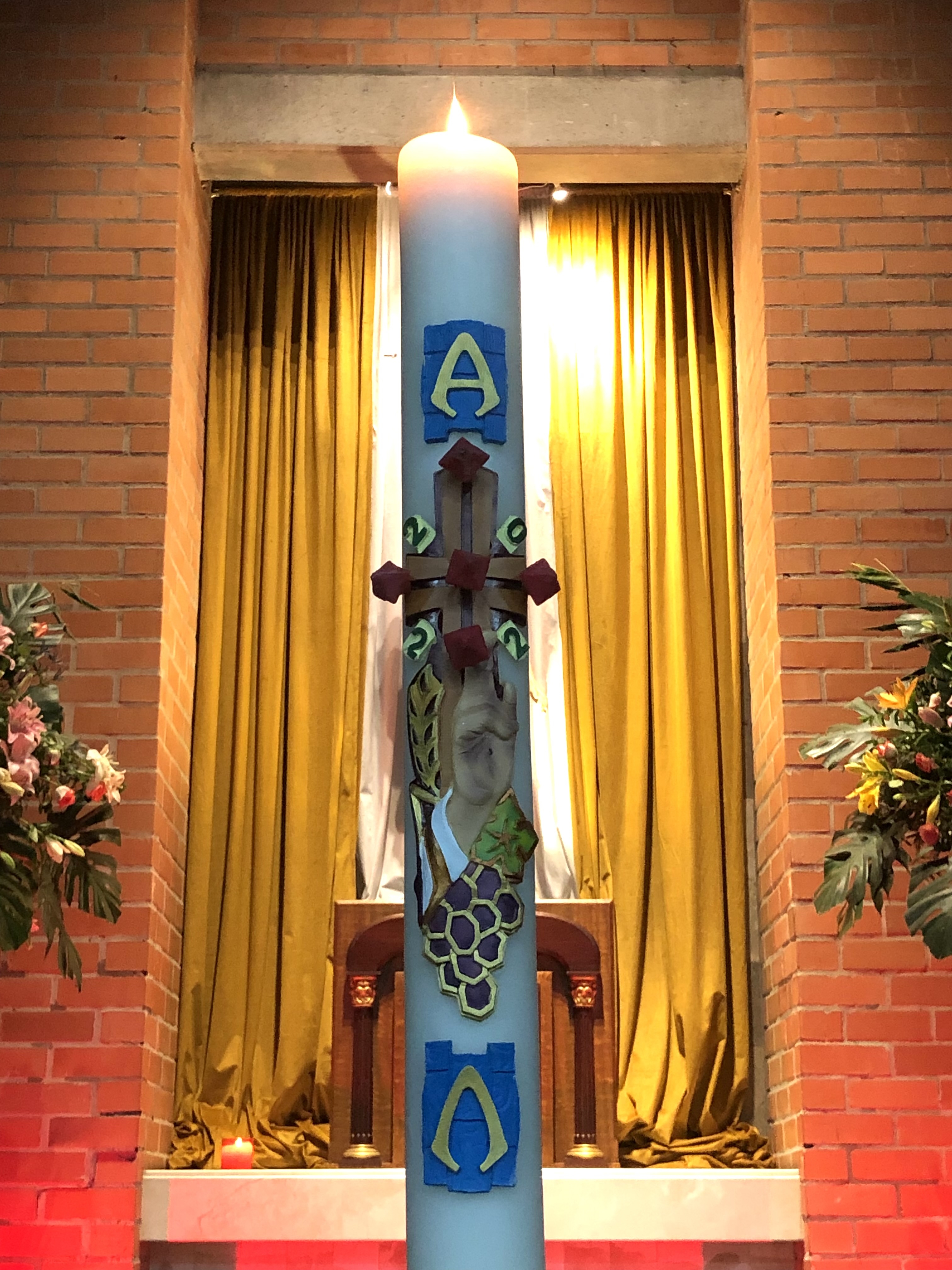These reflections are a result of more than 40 years of ministry as a Roman Catholic priest. Most of these years I spent in the Diocese of Charlotte which covers Western North Carolina. Now I am retired, and live in Medellín, Colombia where I continue to serve as a priest in the Archdiocese of Medellín.

And it happened that, while he was with them at table, he took bread, said the blessing, broke it, and gave it to them. With that their eyes were opened and they recognized him, but he vanished from their sight. Then they said to each other, “Were not our hearts burning within us while he spoke to us on the way and opened the Scriptures to us?” So they set out at once and returned to Jerusalem where they found gathered together the Eleven and those with them who were saying, “The Lord has truly been raised and has appeared to Simon!” Then the two recounted what had taken place on the way and how he was made known to them in the breaking of the bread. (Lk 24:13-35)
https://bible.usccb.org/bible/readings/041223.cfm
This is one of my favorite Easter readings because it’s our story too. We do not journey alone, the Lord gives us companions on the Way. The Risen Lord is the Invisible Guest in every meal, because like the two disciples of Emmaus, we too know him in the Breaking of the Bread.

Jesus said to her, “Mary!” She turned and said to him in Hebrew, “Rabbouni,” which means Teacher. Jesus said to her, “Stop holding on to me, for I have not yet ascended to the Father. But go to my brothers and tell them, ‘I am going to my Father and your Father, to my God and your God.’” Mary went and announced to the disciples, “I have seen the Lord,” and then reported what he had told her. (Jn 20:11-18)
https://bible.usccb.org/bible/readings/041123.cfm
The Risen Lord tells Mary Magdalene to “go and tell,” which is why she has always been called the “apostle to the apostles.” It was Pope Francis that called the church to recognize the special role of Mary Magdalene and raised her feast day to the rank of an apostle and gave her a special preface for the Eucharistic Prayer.

Mary Magdalene and the other Mary went away quickly from the tomb, fearful yet overjoyed, and ran to announce the news to his disciples. And behold, Jesus met them on their way and greeted them. They approached, embraced his feet, and did him homage. Then Jesus said to them, “Do not be afraid. Go tell my brothers to go to Galilee, and there they will see me.” (Mt 28:8-15)
https://bible.usccb.org/bible/readings/041023.cfm
How important are Mary Magdalene and the other faithful women! They are the first to receive the good news, the first to have an encounter with the Risen Lord, and the first to receive the apostolic mission to go and tell. They saw, they heard, they proclaimed! With these three verbs, may we too enter into the passover of the Lord from death to life.

On the first day of the week, Mary of Magdala came to the tomb early in the morning, while it was still dark, and saw the stone removed from the tomb. So she ran and went to Simon Peter and to the other disciple whom Jesus loved, and told them, “They have taken the Lord from the tomb, and we don’t know where they put him.” (Jn 20:1-9)
https://bible.usccb.org/bible/readings/040923.cfm
Christ is risen, He is risen indeed. Alleluia, Alleluia!!! ¡FELICES PASCUAS!

Then the angel said to the women in reply, “Do not be afraid! I know that you are seeking Jesus the crucified. He is not here, for he has been raised just as he said. Come and see the place where he lay. Then go quickly and tell his disciples, ‘He has been raised from the dead, and he is going before you to Galilee; there you will see him.’ Behold, I have told you.” Then they went away quickly from the tomb, fearful yet overjoyed, and ran to announce this to his disciples. And behold, Jesus met them on their way and greeted them. They approached, embraced his feet, and did him homage. Then Jesus said to them, “Do not be afraid. Go tell my brothers to go to Galilee, and there they will see me.” (Mt 28:1-10)
https://bible.usccb.org/bible/readings/040823.cfm
O wonder of your humble care for us! O love, O charity beyond all telling, to ransom a slave you gave away your Son! O truly necessary sin of Adam, destroyed completely by the Death of Christ! O happy fault that earned so great, so glorious a Redeemer!—Exultet (The Easter Proclamation)



